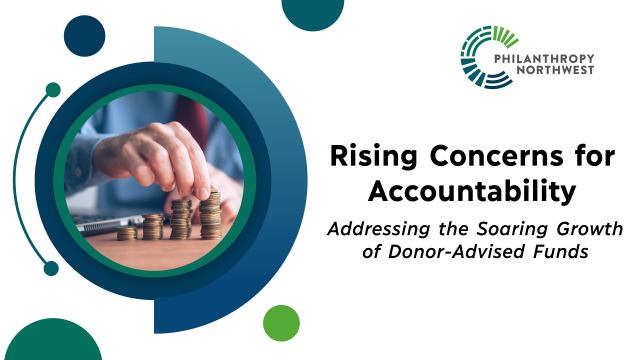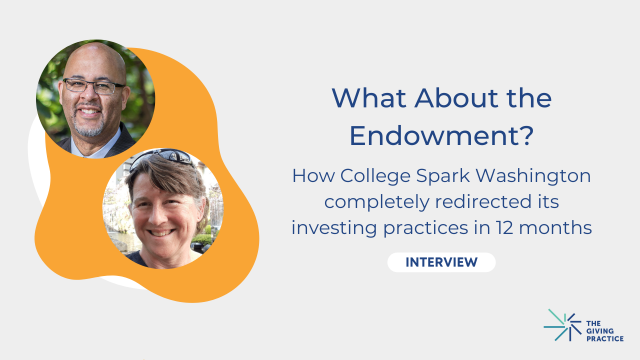
Jeff Clarke, CEO
When a small group of foundations came together more than 10 years ago to discuss the prospects for increasing the number of foundations making program-related investments, those of us around the table were energized by the potential of impact investing. At the same time, we also knew it would take a long time — and a lot of hard work to inform and influence — before it would become accepted as a mainstream idea. That meeting was, among other things, the genesis of Mission Investors Exchange. While we certainly had big aspirations for the field, I’m amazed to see how quickly impact investing is evolving, both in practice and underlying regulation. Here’s the latest:
On September 15, the Internal Revenue Service released important new guidance for private foundation managers who make investment decisions, noting that they are not required to select only investments that offer the highest rates of risk-adjusted return. The IRS now recognizes that aligning investment decisions with a foundation’s charitable purpose can be a component of a prudent investment policy. The IRS wrote:
Questions have arisen about whether an investment made by a private foundation that furthers its charitable purposes, but is not a PRI because a significant purpose of the investment is the production of income or the appreciation of property, is subject to (excise) tax under section 4944…. For example, a private foundation will not be subject to tax under section 4944 if foundation managers who have exercised ordinary business care and prudence make an investment that furthers the foundation’s charitable purposes at an expected rate of return that is less than what the foundation might obtain from an investment that is unrelated to its charitable purposes.
This is remarkably good news for philanthropy! It also could have broader implications for the entire charitable sector, by providing other community philanthropists with important assurance that prudence and mission can be complementary. That is great news for community.
This IRS guidance follows on the heels of advocacy efforts which, in 2012, resulted in the Treasury Department issuing proposed regulations updating examples of program-related investments. The proposed regulations would add nine new examples of investments that qualify as program-related investments to the current 10 examples, which were published 43 years ago in 1972.
Innovation Never Sleeps
At the same time, experimentation continues. As the philanthropic lexicon continues to evolve towards “inclusive economy” and “inclusive capital,” pay for success models (also called social impact bonds) and new entities dedicated to building out the local ecosystem to support impact investing are appearing. A few examples:
- Pay For Success / Social Impact Bonds
Pay for Success activity is taking place across the country. There are currently five discovery projects underway across the Pacific Northwest that include the cities of Boise (homelessness) and Missoula (recidivism), and State of Washington Department of Early Learning and Thrive Washington (scaling Home Visiting programs to serve at-risk families). Philanthropy Northwest is a partner in this work, both with the Washington DEL/Thrive WA project and Policy Innovation Lab, the technical assistance provider for the cities of Boise and Missoula.
- Canopy
Founded by Pacific Northwest philanthropy, Canopy is a unique collaboration to identify opportunities for investors to put capital to work locally in innovative ways by bringing together diverse stakeholders to leverage capital in building a regional investment ecosystem that benefits communities and creates financial returns. Most significantly, Canopy is changing the conversation about how institutions and individuals use their capital to deliver community-defined and financial outcomes. Philanthropy Northwest is a strategic partner of Canopy.
- Philanthropy Northwest
In addition our impact investing network and incubation platform, we are the only philanthropic network in the country committed to investing 100% of our own reserve capital according to our mission. We are currently in process of reviewing our financial institution relationships and look forward to reporting out to the community in the coming months.
As part of Philanthropy Northwest’s ongoing commitment to building a culture of generosity and stewardship underpinned by effective philanthropy here in our place, we remain deeply committed to exploring new ways for impact. Over the next few months, we will translate all of these emerging innovations into new learning opportunities for our growing network. We look forward to learning with you!


